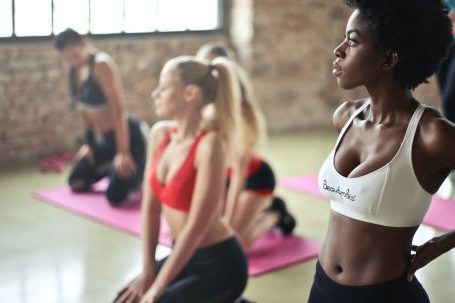Sports-specific training is a key component of any athlete’s training regimen. It involves tailoring exercises and workouts to mimic the movements and demands of a particular sport. By focusing on the specific skills and physical requirements needed for a sport, athletes can improve their performance and reduce the risk of injury. In this article, we will explore the benefits of sports-specific training and provide tips on how to incorporate it into your training routine.
Enhanced Performance
One of the main benefits of sports-specific training is the improvement in performance it offers. By targeting the specific movements and skills required for your sport, you can develop the strength, speed, agility, and endurance needed to excel on the field or court. For example, a baseball player might focus on exercises that improve their throwing accuracy and power, while a basketball player might prioritize drills that enhance their vertical jump and quickness.
Reduced Risk of Injury
Sports-specific training also helps to reduce the risk of injury. By training the body to be more resilient and adaptable to the demands of a particular sport, athletes can minimize the likelihood of strains, sprains, and other common injuries. For instance, a soccer player might work on exercises that strengthen the muscles around their knees and ankles to prevent ligament tears or twists.
Improved Movement Efficiency
Another advantage of sports-specific training is the development of movement efficiency. By honing in on the specific movements and techniques required for your sport, you can improve your body’s biomechanics, making your movements more efficient and effective. This can lead to improved speed, agility, and overall performance. A swimmer, for example, might focus on drills that enhance their stroke technique and streamline their body position in the water.
Optimal Conditioning
Sports-specific training also allows athletes to achieve optimal conditioning for their sport. By tailoring workouts to replicate the intensity and duration of competition, athletes can improve their cardiovascular fitness and endurance. This is particularly important for sports that involve prolonged periods of high-intensity activity, such as long-distance running or cycling. By simulating the demands of the sport in training, athletes can ensure they are prepared to perform at their best when it matters most.
Incorporating Sports-specific Training into Your Routine
Now that you understand the benefits of sports-specific training, let’s discuss how to incorporate it into your training routine.
1. Identify the Key Skills: Start by identifying the key skills and movements required for your sport. This could be anything from shooting accuracy to lateral agility.
2. Design Targeted Workouts: Once you have identified the key skills, design workouts that specifically target those areas. For example, if you are a tennis player looking to improve your serve, incorporate exercises that strengthen your shoulder and core muscles.
3. Focus on Technique: Technique is crucial in sports-specific training. Pay close attention to your form and technique during exercises and drills to ensure you are executing them correctly.
4. Progression and Variation: As you become more proficient in your sport, progressively increase the difficulty of your sports-specific training. Incorporate variations of exercises and drills to continually challenge your body and prevent plateaus.
5. Recovery and Rest: Don’t forget the importance of recovery and rest. Sports-specific training can be intense, so make sure to incorporate rest days into your routine to allow your body to recover and repair.
In conclusion, sports-specific training is essential for athletes looking to master their sport. By targeting the specific skills, movements, and physical demands required for a particular sport, athletes can enhance their performance, reduce the risk of injury, improve movement efficiency, and achieve optimal conditioning. So, whether you’re a soccer player, basketball player, or swimmer, make sports-specific training a priority in your training routine and watch your performance soar to new heights.





